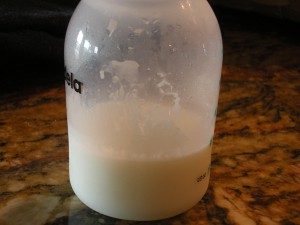You probably already know that childhood obesity has become a serious problem in the United States. But did you know that formula feeding increases the risk that a child will develop obesity later in life? Breastfeeding your baby significantly decreases the chances that he will become overweight as an adult. The Centers for Disease control and Prevention have reported: “…for each month of exclusive breastfeeding, up to 9 months, the risk of obesity is decreased by 4%.” In other words, the longer your baby breastfeeds, the less risk of obesity!
Here is a summary of a few other recent studies: This information is from the “Meds and More Newsletter, by Hale Publishing, December 2012.
Early artificial feeding may increase childhood obesity risk by 15-25%
The research suggests that direct breastfeeding (as opposed to bottle feeding with breast milk) may help a child better regulate his food intake later in life.
Infant weight gain is influenced not only by the type of milk consumed, but the delivery method (breast vs bottle).
Human milk is low in protein compared to other milks and formula which appears to lead to decreased risk of obesity.
Every mother has her own personal reasons for choosing to breastfeed. Maybe it’s because she is concerned about allergies. Perhaps she knows that formula feeding increases the risk of ear infections or other illness. Whatever your reasons for breastfeeding, now you have one more.
So keep breastfeeding! Every month brings new benefits!
For the complete press release: http://www.ibreastfeeding.com/newsletter/2012/12/issue-breastfeeding-and-obesity
 Your milk is a living thing! It is rich in antibodies that are constantly killing off nasty bacteria. For that reason, it is very stable and remains nutritious and safe even after it’s been expressed.
Your milk is a living thing! It is rich in antibodies that are constantly killing off nasty bacteria. For that reason, it is very stable and remains nutritious and safe even after it’s been expressed. 